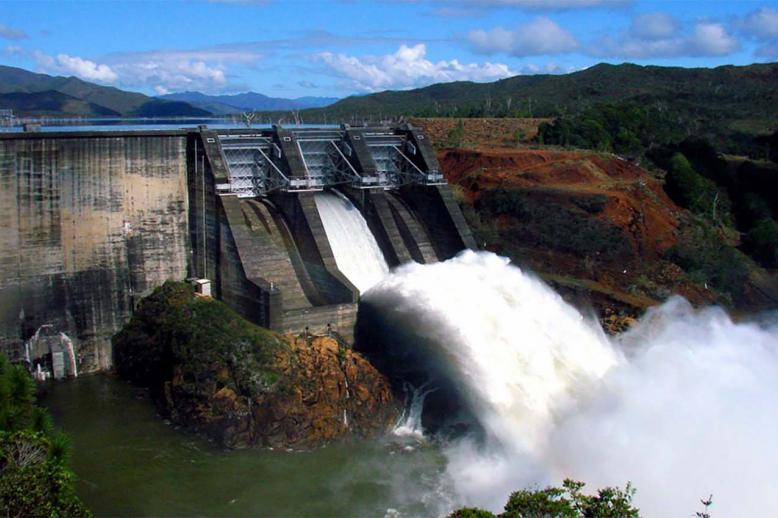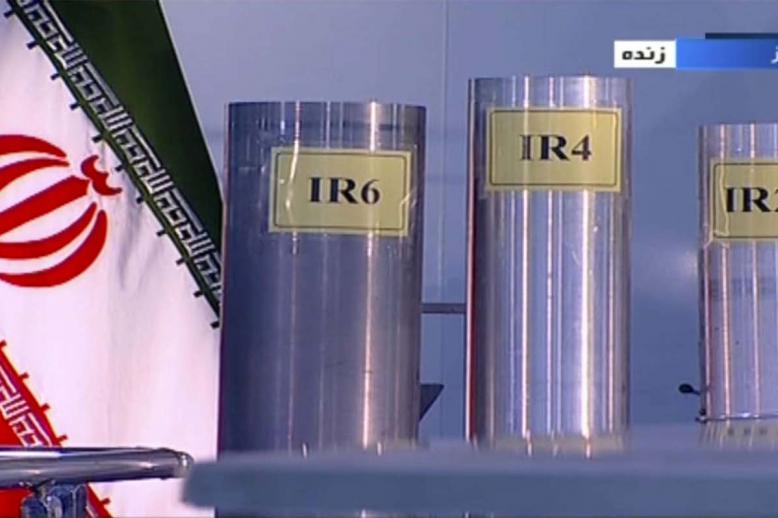UAE’s bold AI partnership with France
Artificial intelligence has become one of the strategic considerations on which countries base their priority alliances. It is now a new outstanding factor that must be taken into account. This creates an historic turning point with considerable implications which can no longer be ignored. The global ranking of any country in artificial intelligence will determine its strategic importance in today’s world.
We are at an historic turning point because this is a major catalyst of sea change that has rarely occurred throughout the periods of awakening in human history.
Take, for example, some of the following features which are likely to advantage any particular nation.
Geographical location is essential as it can enhance a country’s standing. Being on the shore of the Mediterranean, for instance, will put a nation in a position of control over commercial, political and military activity. The ancient world is the Mediterranean. This is true in every sense of the word, even when it comes to the birth and spread of religious beliefs. If you add to the geographical location the development of transportation, you will have more advantages to gain as you stake geography in your favour.
Any country that is endowed with natural resources, both underground and above ground, will gain more attention and win higher status. People themselves are natural resources depending on how they are harnessed. Great nations are those with a marked presence in terms of population. What is meant here, of course, is the size of the labour force that can enhance economic performance, agricultural production or military power. We are not talking about the number of mouths to feed. The invaders or conquerors of the ancient world or relatively modern era were born in countries where human energy had a marked presence. When a nation strikes an alliance with a country that has a meaningful presence in terms of human resources, it provides itself with the immunity and protection in numbers that alliance entails.
The advancement in education and the accompanying development of modern technologies can constitute an impressively lethal weapon. The West rules the world thanks to its scientific and technological advancement. The East is now keeping pace with the West in terms of power, because it has realised that accumulating other aspects of progress may not mean much compared to scientific advancement.
Intellectual progress, openness and keeping pace with the world’s understanding of itself are a tremendous moral asset.
A country, or human gathering, that realises its own importance is hard to defeat. Many ideological blocs have failed because they have allowed themselves to fall captive to this or that idea. Intellectually free people are harder to defeat than those who are led by fear and coercion.
Additional new factors do enter our world almost daily and leave their mark. But there are qualitative leaps, such as the ones we are witnessing today, that make a profound difference. Tanks, for example, have made a difference in the battlefields, followed by airplanes, then there were missiles, nuclear weapons and so on.
Information technology and the communications revolution subsequently followed, proving that the world is indeed the proverbial small village.
Artificial intelligence is one of the distinctive realms of change. The Paris summit this week, attended by a hundred or so countries, will spotlight the difference between active players and spectators. Active presence, illustrated proactively by the AI framework cooperation agreement between France and the United Arab Emirates, paves the way for participation and influence wielding this vast domain.
Artificial intelligence is a technology that requires a lot of resources to generate the greatest possible returns. If there is a lesson learned from the year 2024, it is that a single year in the history of this century can make all the difference.
Then, there are the spectators whose presence passes by unnoticed as they navigate their way without a chart or an understanding of the stakes at hand. We have seen many of these spectators over the past few decades who confined themselves to passively watching the unfolding spectacle as information and communications technology and the knowledge revolution turn into images on telephone or television screens, and generate propaganda, misinformation, and utter failure to guide the public.
We have thus ended up with the piles of ruins we witness almost every day. This does not exempt even advanced countries that harness technology for ideological purposes.
What does it mean for the UAE to invest all these billions in French or European artificial intelligence? The initiative itself is fraught with risks. We believe it is dangerous because similar investments that were made over the past 14 months showed us how the shares of technology companies or groups can grow in value into trillions only to shrink by half after a short time once another factor enters the equation. What happened between the American OpenAI and the Chinese DeepSeek is a case in point.
One remembers how angry Americans were about the sale of Nvidia processors to Chinese companies. This eventually sparked hysterical reactions. Nobody knew then what the issues were. But a few months later, when DeepSeek introduced its cheap model of artificial intelligence for desktop computers and made it accessible at a price that was one-tenth of its US equivalent, one understood what was happening. The war between the producers is now raging and nobody knows where exactly it will lead. But it is for sure an open war that will include many aspects of the escalating conflict between the two competing powers.
The problem with artificial intelligence is that it is a phenomenon which reaches everything, everywhere. it takes only a political and industrial decision to open the door for it to enter any field of activity. Cost is only one aspect of the issues. It is a misleading over-simplification to say expensive American technology is pitted against cheaper Chinese technology. Behind every item or proviso there are many details that cannot be ignored, even in terms of the quality of the processors, their related technologies, and their speed, unlike what the Americans have tried to suggest until a few months ago.
The Emiratis found themselves in the middle of a power game when they had to justify their investment in Chinese technologies or expertise when they wanted to continue acquiring advanced AI technologies.
They ultimately confirmed their commitments, as they always did when it came to important and fateful deals over the last decades, starting with competition to obtain American F-16s, for example, or French Mirage 2000s back in the late eighties.
The justification here is necessary because it reveals the extent to which technologies overlap, and shows the difference between what is copied, what is hacked, and what is a threat to national security.
The Chinese, who are certainly not innocent powers in today’s world, would not have missed the opportunity that a back opening in Abu Dhabi would have offered them. The UAE anticipated their possible move and closed the door to them. But justifications go both ways. The UAE is not about to deprive itself, neither technically nor investment-wise, of AI advantages through self-imposed restrictions. Here came the important French factor that allowed the Emiratis to enter the playing field through another main door.
European AI is not completely bound by American considerations. There is no doubt that the Americans do not want to allow the full transfer of technology to Europe, especially now that Trump has come to power, nor do they want to restrict it altogether. Europeans need AI in every aspect of their daily activities and in a wide range of fields. Now they have to decide how to develop this technology, with what funding and for the benefit of which allies.
Abu Dhabi seems to be a very suitable ally. The Emiratis realise that the process is profitable because there is a huge market in Europe for this type of advanced activity. It is enough to look at the big players in Europe, namely France, Germany, Italy and Spain, who are leaders in the largest industrial, commercial and economic bloc in the world. There is nothing that could provoke the United States’ resentment of Europe over artificial intelligence. But it is in Europe’s interest to develop its own policies so there does not come a moment when Trump or someone from his school of thought (if one can describe what he says as thought or what his cabinet member Elon Musk does as flashes of thought) exercises some kind of censorship or interdiction. Even if this does not happen, the huge European market itself would appeal to any investor who wishes to come and work with increased protection guarantees, as the world is moving towards blocs and tariffs-based protectionism.
Working with the Europeans is as profitable for the Emiratis as it is useful, because it provides them with a knowledge base in a vast competitive world.
One must remember that in Abu Dhabi there is an AI university and large companies and institutes, which have worked to attract French expertise, meaning that the environment is already available to sign agreements such as the one signed last week in Paris in the presence of the UAE President Sheikh Mohammed bin Zayed Al Nahyan and the French President Emmanuel Macron.
The European market, for several reasons, may not be receptive to the Chinese model of artificial intelligence. This does not mean that it will reject it, but since artificial intelligence has been classified as a technology, commodity, or even a strategic weapon, France will build its industry with its own body of knowledge and with the support and funding of reliable allies such as the UAE, just as it did by developing weapons, aircraft, tanks, missiles and other equipment, all the way to para-military equipment such as Airbus aircraft and satellite carrying rockets.
When the agreement is concluded and is finalised as a deal, artificial intelligence will undoubtedly be a turning point on which important alliances will be based, and the data centre that is being considered with an Emirati investment of between 30 and 50 billion euros will be no less valuable than building a giant military base. It would even p, without exaggeration, exceed a military base in terms of importance.
This makes Abu Dhabi an investor in the heart of the world’s advanced super-tech industry, in a sector that is protected by many of the basic guarantees of joint European ventures. and it is unlikely that it will face challenges in the near future from Chinese or American competitors over markets.
The agreement can only be viewed from this perspective as long as it is the reason for forming alliances and building partnerships. The difference lies in the fact that the UAE and France (and behind France, many European low-profile nations) do not want to exaggerate the importance of the deal, and prefer to let the Paris AI Summit tackle it.
The world is embroiled in problems of a different kind, problems that also draw the attention of the UAE and France. But paying attention to these problems does not mean that the world should take itself out of a major process that has started and is accelerating at the speed of light. In the rich tradition of the links between the UAE and France, these relations have remained both special and beneficial to both sides.
The recent AI agreement is another chapter in this rich history. It suffices to climb to the highest Paris rooftop and look with Emirati or French eyes in order to see the difference between an actor and a spectator.
Dr. Haitham El Zobaidi is the Executive Editor of Al Arab Publishing House







